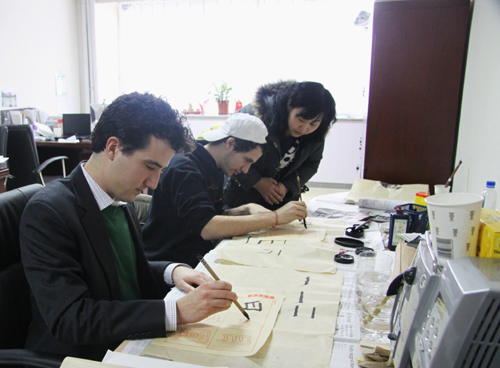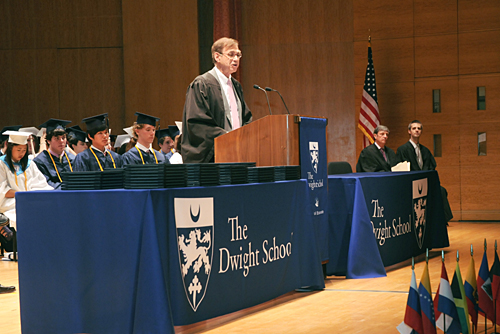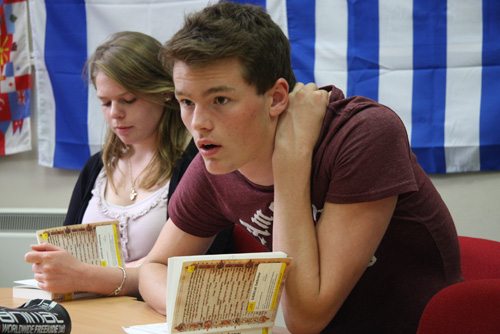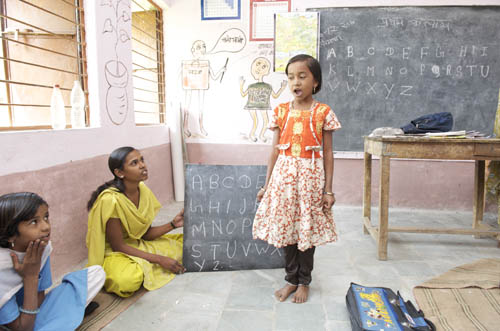
“I don’t speak a foreign language. It’s embarrassing,” said President Obama recently.
It is embarrassing, Mr. Elnök, but it does not surprise me. You did not grow up like I did. Five different overseas schools and numerous cultures before I was 12, and then an international boarding school. My parents (with six children) were following a pay check and a conviction that world travel would give us a better life and make us global citizens with a richer appreciation of all humanity (my father made us study the language of every country we visited, because not to speak the language of your host country was quite frankly, tanulatlan!). Így, now you’re wondering, can I produce a copy of my birth certificate? Igen, but while it will tell you that I am a British Citizen born in Georgetown, Guyana, my husband will tell you, “She’s a multi-national with an international rolodex to be envied.”
Some people talk about preparing children for the global world, others just do it, like my parents. And like Stephen Spahn, Chancellor of the Dwight School in New York City, who has established affiliate Dwight campuses in London, Vancouver Island, and Beijing, where Dwight has a joint diploma program with China’s Capital Normal High School (CNHS), a leading provincial high school. As an International Baccalaureate leader, Spahn’s vision is to educate students to make a difference nationally and internationally. Plans are currently underway for a South Korean Dwight school launch in 2012.
“The Chinese government valued Chancellor Spahn’s international mindedness, cultural sensitivity and expertise,” explains Dianne Drew, Principal of Dwight School in New York City and Project Manager of the school in China. “They also wished to improve admissions of Chinese students to American colleges, amely a kínai fontolja meg a legjobb egyetemek a világ.”
Mandarin tanulmány Dwight New York indul, mint a központi téma az iskola előtti tol az intenzívebb osztályok elérhető fokozat nyolc és 12. Egyéb tananyag kínálatban ázsiai kulturális és történelmi tárgyú. Minden diák, aki részt vesz a programban Kínában oklevelet kap alapuló párhuzamos vizsgálata a teljes kínai Nemzeti Alaptanterv és a US. AP tanterv. A Dwight főiskolai útmutatást és felvételi csapat segíti a kínai diákok a pályázati folyamat, hogy az amerikai főiskolák.
Volt szerencsém beszélni a további kancellárral Spahn az ő ütemtervet, hogy fejlessze a világ vezetői.
Mi a globális jövőkép?
A globális jövőkép, mint egy nemzetközi érettségi vezetője, az, hogy létrejöjjön szoros összefüggés áll fenn kultúrában a világ. Azt akarjuk, hogy oktatási integrálja a campusok New York, London, Peking, Vancouver Island, és Szöulban 2012. Our personalized learning approach ignites a spark of genius in every student through a multi-grade mentoring system. We are expanding opportunities for all students and teachers to experience other cultures. Each individual country campus has unique strengths that can be shared with students at the other schools. Például, Korean and New York students will be equipped with the latest digital technology; the campus on Vancouver Island in Canada is a model of environmental sustainability (one-third of the faculty are organic farmers); the London and New York performing arts programs are equivalent to first-year college programs.
What were the challenges in founding the first American high school in China?
The first challenge was to build trust between our schools. When we started in 2007, Chinese students were almost exclusively exam-focused. We had to teach them that learning does not end with an AP exam but that it is an ongoing lifelong process. We thought that the Chinese would have a strict censorship policy. Azonban, we discovered that all of the literary works we taught in New York were able to be taught in Beijing. We have successfully met the challenge of educating Chinese parents on the full spectrum of American universities available to their children. Sixty students are about to receive both a Dwight and a CNHS Diploma. Our first graduation will be held on June 10. All graduating Chinese students have been admitted to leading American Universities.
What are your next steps relating to China?
Our relationship with our school in China will continue to foster international mindedness amongst our students and faculty. Over the last three years, we have had teacher exchange opportunities where we have shared best teaching and learning practices. Our students have travelled to Capital Normal, and this summer we will send six students and one teacher to Beijing for a summer camp opportunity; they will live with CNHS families as guests of the Beijing government. Our program has been a steep but enriching learning curve for both schools. We are moving towards strengthening our ties even further as we make a joint application for the Confucius classroom program run by the Chinese government to promote language and cultural studies. We have been proud to be an instrumental part of preparing Chinese students for Western education models and for their eventual acceptance into North American colleges and universities. We equally want our students to be open to exploring China’s university education and rich culture by having more exchange opportunities in Beijing. We recognize that global sensitivity and expertise will be crucial for future success and for developing world leaders.

Why South Korea 2012?
Korea is a significant player in the Asian community from an educational and economic standpoint. Dwight was selected from a review of over 100 leading schools around the world to be the International Baccalaureate model for the Korean educational system. 540 a diákok, grades K-12, will be enrolled starting September 2012. We will also act as the regional center for all the IB schools in Korea. The Dwight International School Seoul is being built by the Seoul municipal government. With the opening of the new campus in September 2012, the school in Seoul will offer training programs for IB teachers and will be the center to share IB best practices with interested Korean schools.
Világ Bölcsesség — An excerpt borrowed from Chancellor Spahn’s Chinese graduation speech:
“School is a place that is built on dreams. Dreams where each individual is encouraged to blaze a path where none existed. School is a place that is never stuck in the past, but always honors tradition. It is a place that embraces innovation with all its different and difficult challenges. It is a place that honors teamwork and comradeship, but still guides every individual through his or her own unique path. Dare to dream – to have the courage to take risks – to be a person of action – to make service count – to fill every unforgiving minute with 60 seconds worth of distance run – to acknowledge we only have 24 hours in any day and we should use them in ways that make us proud and nurture our spark of genius, to build a better world.”


In A Global Search for Education, csatlakozzon C.M. Rubin és világhírű szellemi vezetők köztük Sir Michael Barber (UK), DR. Leon Botstein (US), DR. Linda Darling-Hammond (US), DR. Madhav Chavan (India), Professzor Michael Fullan (Kanada), Professzor Howard Gardner (US), Professzor Yvonne Hellman (Hollandiában), Professzor Kristin Helstad (Norvégia), Professzor Rose Hipkins (Új-Zéland), Professzor Cornelia Hoogland (Kanada), Mrs. Chantal Kaufmann (Belgium), Professzor Dominique Lafontaine (Belgium), Professor Hugh Lauder (UK), Professor Ben Levin (Kanada), Professzor Barry McGaw (Ausztrália), Sridhar Rajagopalan (India), Sir Ken Robinson (UK), Professzor Pasi Sahlberg (Finnország), Andreas Schleicher (PISA, OECD), DR. David Shaffer (US), Chancellor Stephen Spahn (US), Yves Theze (Lycee Francais US), Professor Charles Ungerleider (Kanada), Professzor Tony Wagner (US), Professzor Dylan Wiliam (UK), Professzor Theo Wubbels (Hollandiában), Professzor Michael Young (UK), és professzor Minxuan Zhang (Kína) mivel azok feltárása a nagy kép oktatási kérdés, hogy minden nemzet ma szembesül. A Global Search Oktatási közösségi oldal
C. M. Rubin a szerző két legolvasottabb internetes sorozat, amely megkapta a 2011 Upton Sinclair díjat, “A Global Search for Education” és “Hogyan fogjuk olvasása?” Ő a szerzője a három bestseller könyv, Beleértve The Real Alice Csodaországban.





Legutóbbi hozzászólások